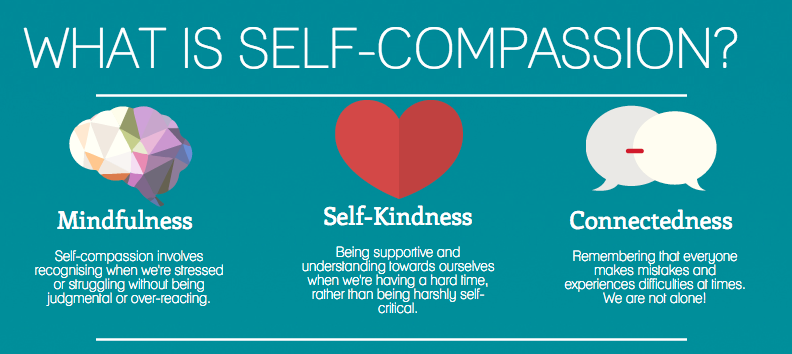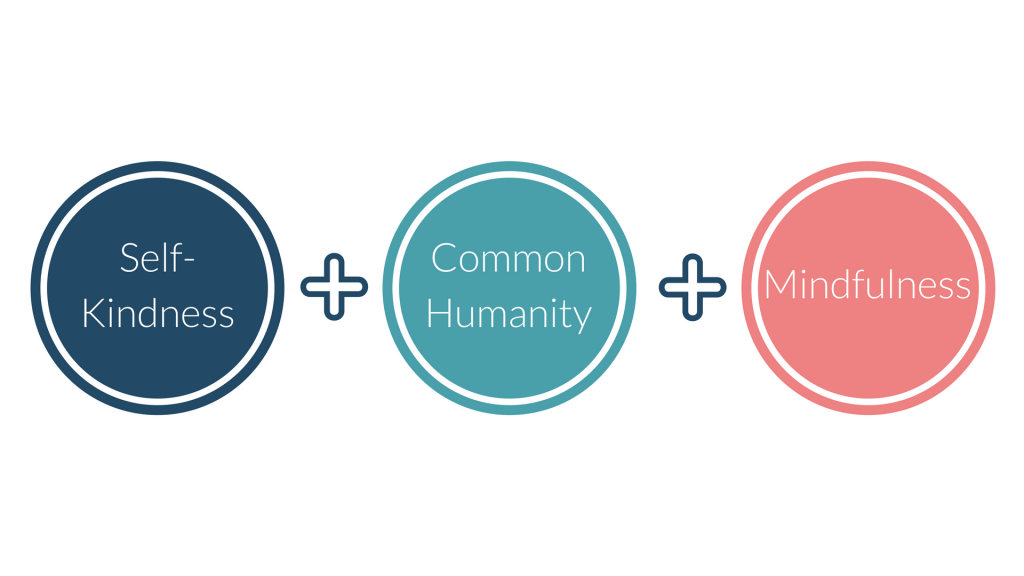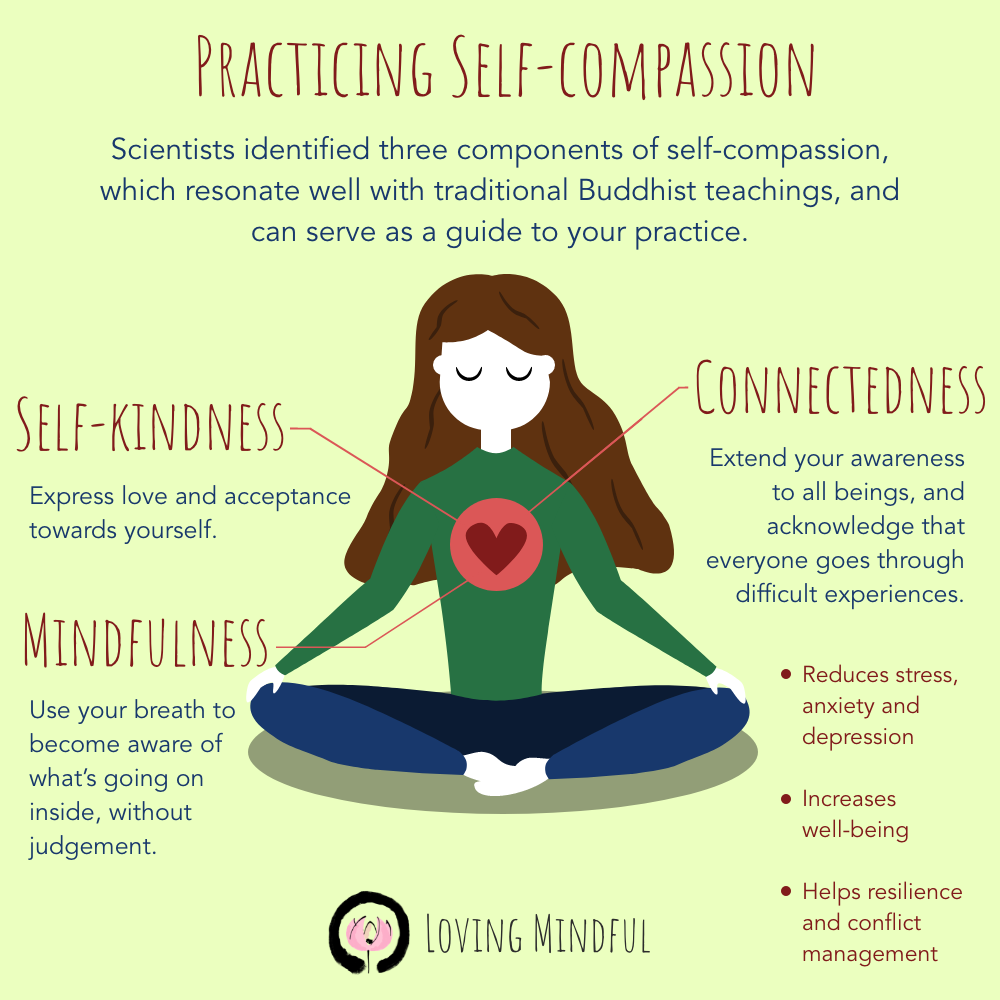Self-Esteem and Self-Compassion

One of the biggest internal struggles we face is: no matter how hard we try, no matter how successful we are, no matter how good a parent, worker, or spouse we are – it’s never enough. There is always someone richer, thinner, smarter, or more powerful, someone that makes us feel small in comparison.
So what do you do in this situation?

Consider self-esteem improvement
There are many books and articles promoting self-esteem- how to get it, raise it and keep it. We live in an exceptionally competitive culture. Social media paints our perceptions of reality and therefore we each try to feel special and above average. In fact, according to studies, being called “average” is an insult.
Of course we don’t want to suffer from low self-esteem either, so what’s the alternative?
There is another way to feel good about ourselves: self-compassion.

Self-compassion involves being kind to ourselves when we notice something about ourselves we don’t like, rather than being cold or self-critical. We, as humans, are imperfect. Self-compassion helps us feel connected to others when we fail or suffer rather than feeling separate or isolated. It also involves mindfulness — the recognition and non-judgmental acceptance of painful emotions as they arise in the present moment.
Self-compassion vs. Self-esteem.
Self-esteem refers to the degree to which we evaluate ourselves positively. It represents how much we like or value ourselves, and is often based on comparisons with others. In contrast, self-compassion is not based on positive judgments or evaluations, it is a way of relating to ourselves. People feel self-compassion because they are human beings, not because they are special and above average.
Research indicates that self-compassion offers the same benefits as self-esteem (less depression, greater happiness, etc.) without its downsides. People who receive self-compassion training report less negative emotions and take more responsibility for their actions. This suggests that – unlike self-esteem – self-compassion does not lead to blaming others in order to feel good about oneself.
Although self-compassion may seem similar to self-esteem, they are different in many ways. Self-esteem refers to our sense of self-worth, perceived value, or how much we like ourselves. In contrast to self-esteem, self-compassion is not based on self-evaluations. People feel compassion for themselves because all human beings deserve compassion and understanding, not because they possess some particular set of traits (pretty, smart, talented, and so on).

5 Tips to Foster Self Esteem:
- Question Perfectionism
- Voltaire said, “The perfect is the enemy of the good.” This is the case with self-esteem. When you can only accept perfection, you deprive yourself of the satisfaction of being “good enough.”
- Quiet Confidence
- Self-esteem is not just for extroverts! You don’t have to be the life of the party to be confident.
- Self-confidence may shine through as a calm, steady presence, or an internal willingness to risk failure to work toward a valued goal
- Exercise
- Not only is exercise physically healthy for you, but it also will keep your confidence high.
- Thirty minutes of aerobic exercise will release beta-endorphins that increase feelings of well-being, and lower levels of cortisol, which will lower your stress and anxiety.
- Eat well
- Make sure to eat foods that are healthy and will nourish your body. Eating healthy well-balanced meals will make sure you don’t feel stuffed and tired.
- Look Inward
- How you feel about yourself is the most important thing!
- Stop being too hard on yourself.
Singh Snapshot
It does take work to break the self-criticizing habits of a lifetime, but at the end of the day, you are only being asked to relax, allow life to be as it is, and open your heart to yourself. It’s easier than you might think, and it could change your life.



Leave a Reply